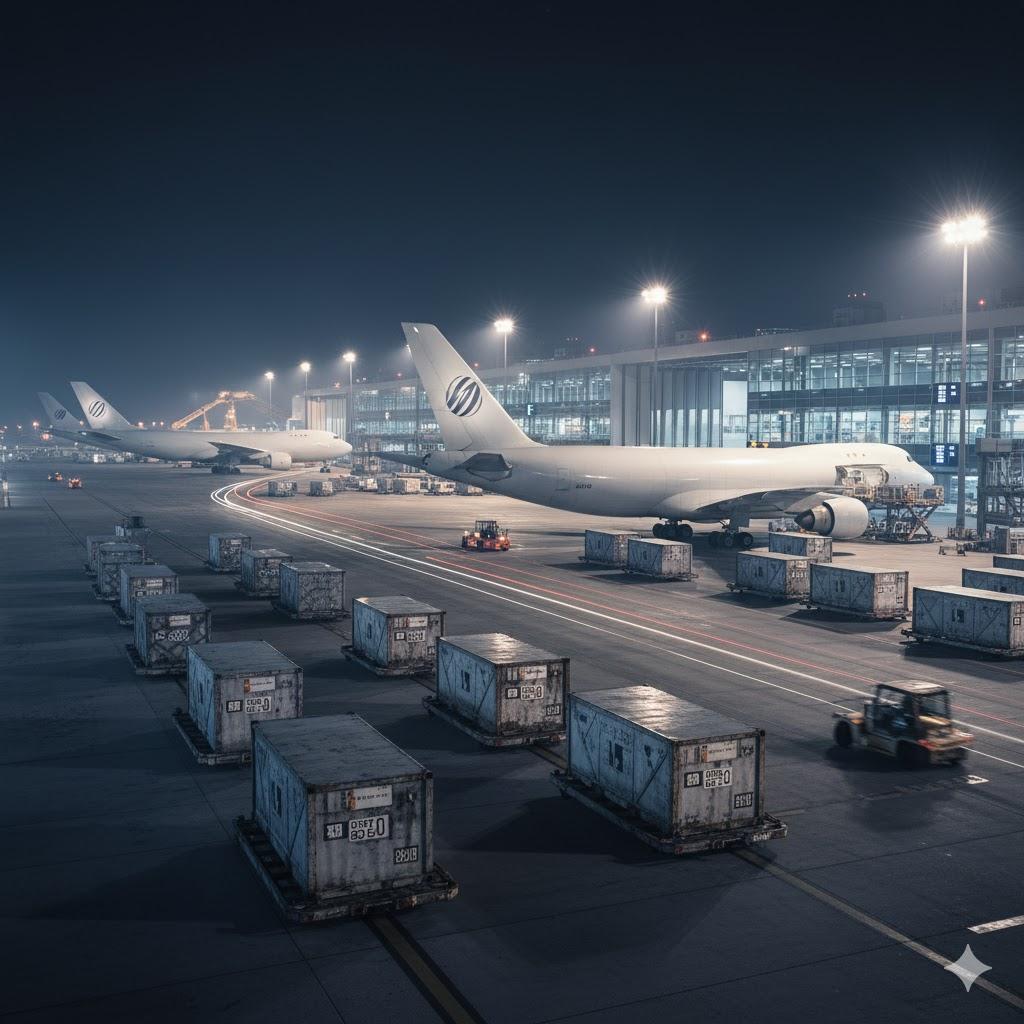New York, USA, - 18 November 2025 - The global Air Cargo Market is entering a period of significant transformation and accelerated growth, driven by the rapid expansion of e-commerce, increasing demand for time-sensitive deliveries, and continuous technological advancements in air freight operations. As businesses prioritize speed, reliability, and global reach, the air cargo industry is becoming a critical backbone of international trade and logistics networks.
The Air cargo market size is expected to reach US$ 210.92 billion by 2031 from US$ 141.03 billion in 2024. The market is anticipated to register a CAGR of 5.8% during 2025–2031. This momentum reflects a notable shift in consumer buying behavior, with more customers relying on fast delivery options, thereby boosting the need for efficient air freight solutions.
Request Sample Pages of this Research Study at – https://www.theinsightpartners.com/sample/TIPTE100001311
Growing E-Commerce Influence
E-commerce continues to be the most powerful driver of the air cargo sector’s upward trajectory. With online retail sales surging globally, businesses require dependable logistics partners to move products quickly across borders. Air cargo operators are increasingly partnering with e-commerce giants and third-party logistics providers to enhance last-mile connectivity, reduce transit times, and meet the evolving expectations of end consumers.
The rise of cross-border e-commerce is also pushing carriers to expand their global network coverage. This trend has encouraged airlines to invest in more freighter aircraft, optimize existing fleets, and expand capacity to meet growing demand. Additionally, specialized cargo aircraft designed to handle high-volume shipments are becoming more prevalent.
Technological Advancements Reshaping Operations
Technology is paving the way for a more efficient and transparent air cargo ecosystem. Tools such as AI-powered analytics, IoT-enabled tracking, blockchain documentation, and automated cargo terminals are revolutionizing how cargo is processed and delivered. These digital solutions reduce manual errors, enhance security, improve shipment visibility, and streamline customs procedures.
Airports and carriers are also embracing robotics for cargo sorting, packaging automation, and warehousing operations. These innovations not only speed up processing but also reduce operational costs, creating a more competitive market environment.
Growing Importance of Perishable and High-Value Goods
Air cargo is increasingly relied upon for transporting pharmaceuticals, fresh produce, electronics, and other high-value or temperature-sensitive goods. The expansion of the life sciences and biotechnology sectors has significantly contributed to higher demand for cold chain air transport. Airlines are investing heavily in temperature-controlled containers, data loggers, and compliant storage facilities to ensure the safe and efficient movement of sensitive goods.
Furthermore, the global focus on healthcare logistics during and after the pandemic strengthened the air cargo industry’s capability to manage large-scale, fast-paced distribution of vital medical supplies. This experience has positioned air carriers as strategic partners for governments and healthcare organizations worldwide.
Sustainability Efforts Gaining Momentum
As environmental concerns grow, the air cargo industry is actively investing in sustainable aviation practices. Airlines are adopting fuel-efficient aircraft, exploring sustainable aviation fuel (SAF), and enhancing route optimization to reduce emissions. Many carriers are also focusing on carbon offsetting programs and environmental certifications to align with global sustainability goals.
Regional Developments Strengthening Market Outlook
· Asia-Pacific remains the fastest-growing region in the global air cargo market due to booming manufacturing activity, expanding e-commerce, and strong export demand. China, India, and Southeast Asian countries are witnessing significant investment in logistics infrastructure, including new cargo terminals, dedicated freighter routes, and multimodal transport systems.
· North America and Europe continue to dominate in terms of air freight capacity, supported by established trade routes and advanced airport ecosystems. Meanwhile, the Middle East is emerging as a major global cargo hub, thanks to its strategic geographic location and world-class aviation facilities.
Future Outlook
The air cargo market is expected to experience sustained growth as global trade volumes rise, consumer expectations evolve, and digital transformation accelerates across the logistics sector. Companies that prioritize innovation, expand cargo capacity, and integrate sustainable practices will be well-positioned to thrive in this competitive landscape.
Interested in Purchasing this Report? Click here @ https://www.theinsightpartners.com/buy/TIPTE100001311
About Us: -
The Insight Partners is a one-stop industry research provider of actionable intelligence. We help our clients in getting solutions to their research requirements through our syndicated and consulting research services. We specialize in industries such as Semiconductor and Electronics, Aerospace and Defense, Automotive and Transportation, Biotechnology, Healthcare IT, Manufacturing and Construction, Medical Devices, Technology, Media and Telecommunications, Chemicals and Materials.
Contact Us:
If you have any queries about this report or if you would like further information, please get in touch with us:
Contact Person: Ankit Mathur
E-mail: ankit.mathur@theinsightpartners.com
Phone: +1-646-491-9876
Also Available in : Korean German Japanese French Chinese Italian Spanish



